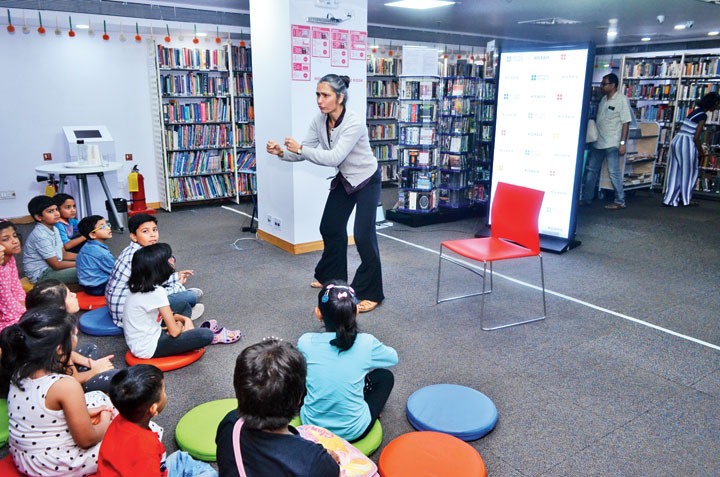A British storyteller who loves tales from Mahabharata mesmerised a young audience in the city on Saturday with stories from the Armenian oral tradition, interspersed with her grandma’s tales.
Vergine Gulbenkian, a professional storyteller and craniosacral therapist on a five-city tour of the country, has been taking workshops and spinning yarns for different Indian professionals across the country.
“I find the storytelling culture has become far more alive and vibrant in India since my last visit to Delhi and Chandigarh eight years ago. Teachers, entrepreneurs, corporates, everybody wants to communicate through storytelling,” said Gulbenkian who has been telling stories for over two decades now.
“In Britain, in comparison, the more than 40-year-old tradition is losing out on art council funding. So storytellers there have far less opportunity to perform now,” Gulbenkian said.
It was theatre that led her to storytelling. “I am from a theatre background and I found drama a little restrictive. In the end you are at the mercy of the director...,” said the storyteller who loves collecting folk and traditional tales from Europe, Asia, Russia and even Scandinavian countries.
Gulbenkian said she reworked the folk and fairytales and often added her personal experiences to the repertoire. Her performance at the British Council on Saturday was replete with songs, voice modulations and emotive actions.
“I started by reciting poetry in the beginning of my career. It helped me communicate with the audience in the new way,” said Gulbenkian, who now finds her art more challenging than theatre.
Saturday’s repertoire included tales about royalty, fantasy and also one about a mouse and cock, dripping in dark humour, that Gulbenkian’s grandmother would tell her.
The Turkish story of Asli and Kerem made her talk about her own journey as a storyteller in search of little-known love epics.
“I find the Indian audience very sharp. They have an underlying understanding of allegories,” Gulbenkian said. “Maybe in future I might use some Indian tales in my repertoire. This tour has been so much about self- learning. I met shadow puppeteers in Delhi who had me hooked on the folk tradition.”
Gulbenkian claims to be searching for ways to make that final leap to connect with the audience.
“My mother would say I always told a story well as a child. Later as I grew older, listening became as important as telling a story. Stories can help children talk about their issues so it’s important to leave them open-ended and not too didactic,” said the fan of Turkish-British novelist Elif Shafak.










